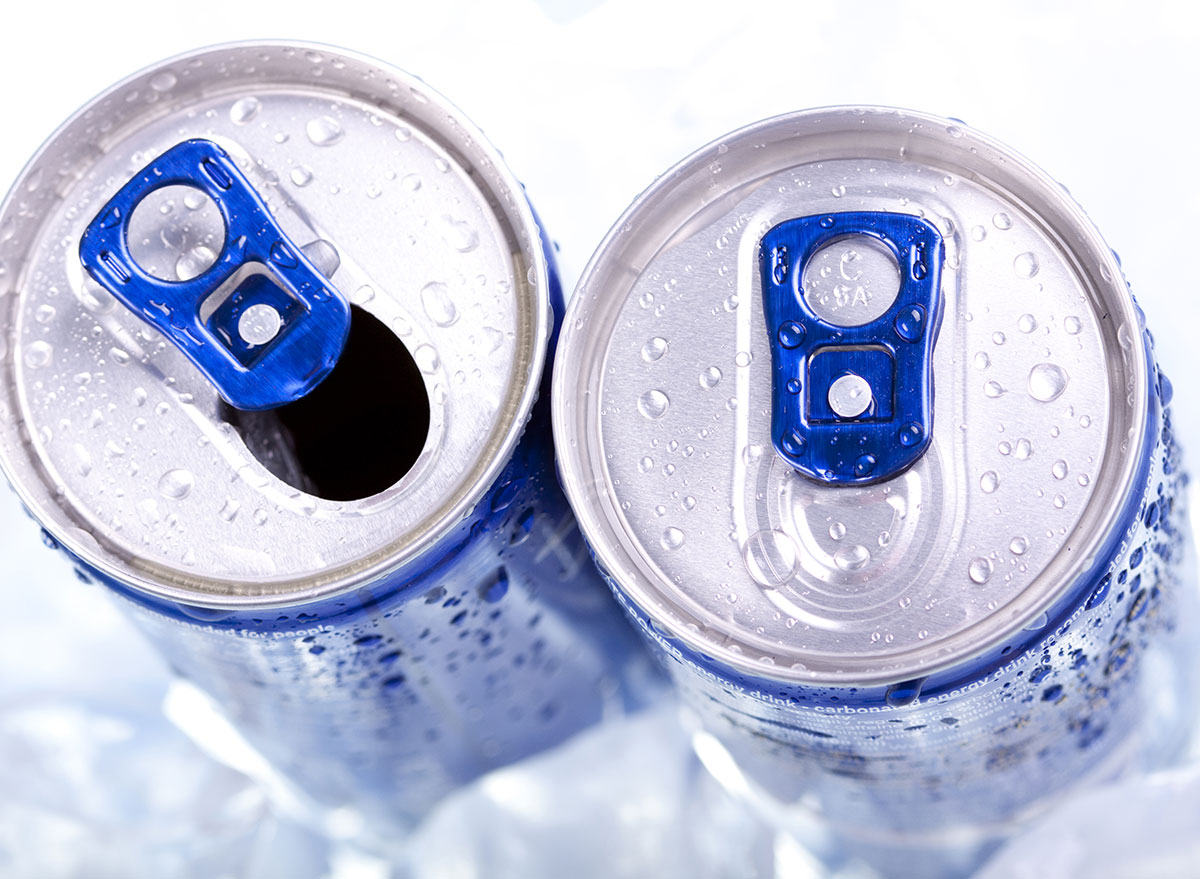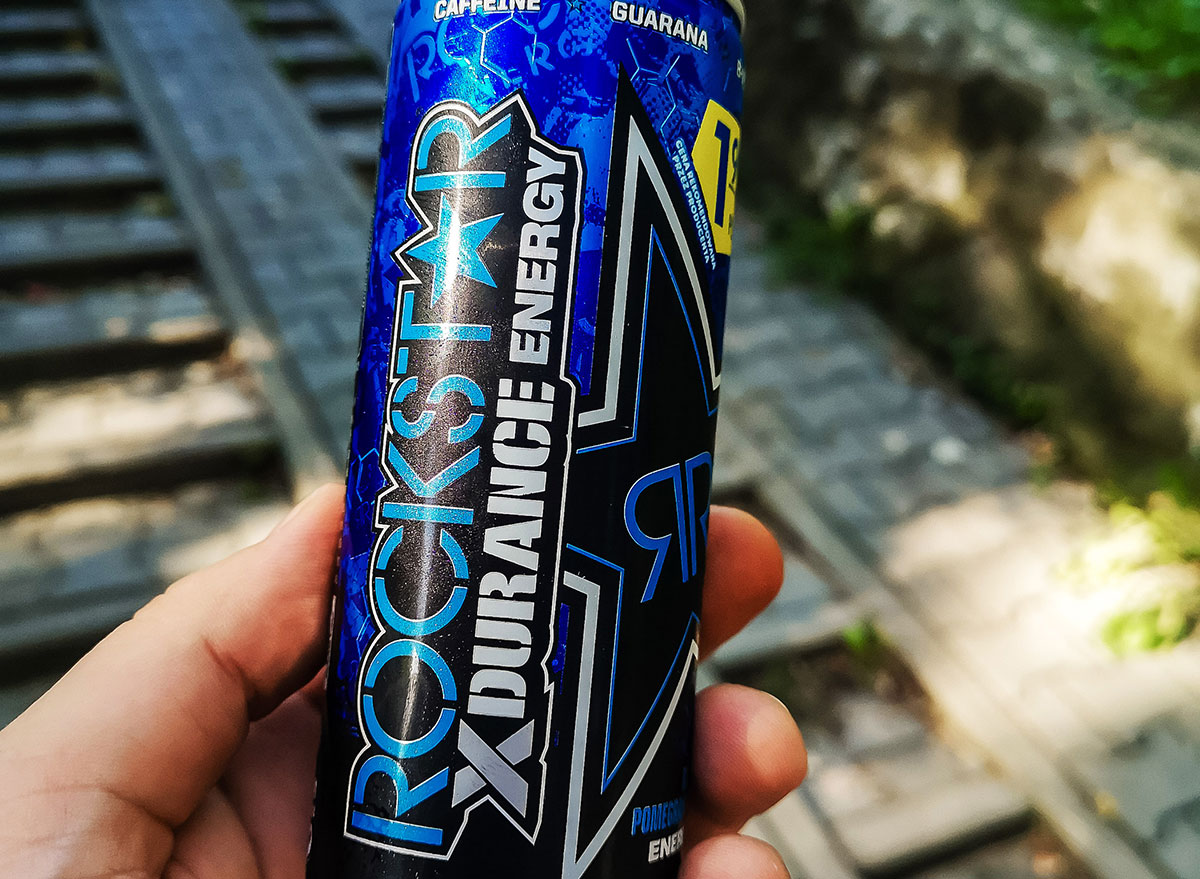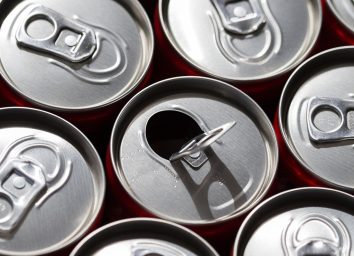5 Alarming Studies About Energy Drinks You Need to Know

The latest news about energy drinks could be a buzzkill. According to a case report published in BMJ Journals, three doctors from London offered a recent account of a 21-year-old man who landed in intensive care—and was diagnosed with severe biventricular heart failure—due to excessive consumption of energy drinks.
The patient reported a number of ailments that had been troubling him for four months, including shortness of breath on exertion, breathlessness while lying down, and weight loss, along with heart palpitations, bouts of digestion issues, and tremors. His declining health left him so weak that he was forced to quit the university he’d been attending.
While he was initially being considered for two organ transplants—heart and kidney (caused by an unrelated condition)—his cardiovascular disease has greatly improved with medication, as well as eliminating energy drinks from his diet. So, how many beverages was he consuming? Roughly four 500-milliliters cans a day for nearly two years. The study authors stated that each serving contained 160 milligrams of caffeine.
And here’s how that number compares to other popular caffeinated beverages: The U.S. Food & Drug Administration (FDA) reports that a 12-ounce soft drink contains between 30 to 40 milligrams of this stimulant, an 8-ounce cup of tea typically contains 30 to 50 milligrams, and an 8-ounce cup of coffee holds anywhere between 80 to 100 milligrams.
The National Institutes of Health (NIH) states that even though these highly-caffeinated beverages may enhance alertness, these stimulating products—either energy drinks or energy shots—also come with a list of potentially serious side effects. Here, we offer four more health complications that may be caused by downing too many energy drinks, and then don’t miss The Most Dangerous Ingredients in Energy Drinks, According to Dietitians.
High blood pressure.

In one study that was published in the Journal of the American Heart Association, researchers offered participants a pick-me-up beverage—some were given an energy drink (which contained up to 320 milligrams of caffeine for every 32-ounces, as well as B-vitamins and the protein taurine) while others were handed a placebo drink (a mixture of carbonated water, lime juice, and cherry flavoring).
The authors discovered that the volunteers who consumed the energy drink showed an increased QT interval (a measurement of time it takes for the ventricles in the heart to beat again) and higher blood pressure levels up to four hours later. An irregular heartbeat (arrhythmia) and high blood pressure (hypertension) could lead to other life-threatening heart events.
Insomnia.

During a four-year study conducted by sports scientists from Spain, male and female athletes were instructed to drink a particular beverage before playing in a game or competition. While some of the volunteers consumed an energy drink, others drank a placebo cocktail. The findings, which were published in the British Journal of Nutrition, showed that the football players, hockey players, climbers, and swimmers who guzzled energy drinks displayed enhanced performance between 3% and 7% compared to the placebo drinkers.
However, these men and women also suffered from insomnia—a sleep disorder defined by the Sleep Foundation as having difficulty falling asleep, sleeping throughout the night, or not sleeping as long as you would like in the morning. They also reported nervousness and a heightened level of stimulation for hours afterward.
Mental health issues.

Since energy drinks are promoted as having the ability to boost mental performance, researchers from University of Western Australia, Perth, decided to find out if this perk came at the expense of any mental functions. As it turns out, it did. Using data from a population study questionnaire, the authors discovered that men who became energy drink consumers during the two-year research period reported elevated feelings of stress, depression, and anxiety. Interestingly, this relationship was not seen among women.
Poor decision making.

In order to establish any possible connection between energy drinks and risk-taking, investigators from Johns Hopkins reviewed the responses from an online survey filled out by more than 870 adults, ages 18 through 28. According to the results, which were published in the Journal of Caffeine Research, the participants who drank at least one energy beverage each week were twice as likely to smoke cigarettes, as well as more than twice as likely to use illicit drugs (such as cocaine). Other risky behaviors were reported, including having unprotected sex with someone who wasn’t their spouse (63%), driving without a seatbelt (53%), and driving while intoxicated (30%).
What can you do to increase energy levels without resorting to energy drinks?
If you’re looking for more stamina throughout the day, Jessica Cording, MS, RD, CDN, INHC, author of The Little Book of Game-Changers: 50 Healthy Habits For Managing Stress & Anxiety, and host of the podcast “Drama-Free Healthy Living with Jess Cording,” says the solution can likely be found by examining your diet and lifestyle.
“When a patient says they have been or are interested in using energy drinks, we’ll talk about making sure they’re eating to support stable energy by having a combination of protein, fat, and carbs that keeps their blood sugar on an even keel—a big factor in energy levels,” she says. Being properly hydrated can also help the body fight daytime fatigue, she adds.
“I’ll also put on my health coach hat and talk with them about other factors, such as exercise, sleep, and stress. Then we come up with a personalized plan to address their needs and help them feel better without energy drinks,” says Cording. “It’s amazing what a difference a few small shifts can make!”
And be sure to check out Popular Drinks That May Cause Lasting Damage to Your Liver, According to Experts.








